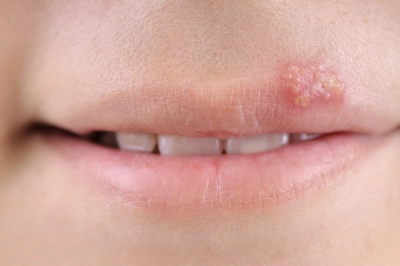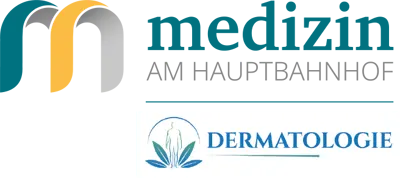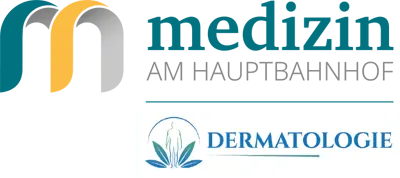 HERPES SIMPLEX
HERPES SIMPLEX
Unsightly and irritating small blisters on the face or on other parts of the body such as the genital area are the result of the herpes simplex disease. FIND OUT HOW THIS DISEASE DEVELOPS AND WHAT TREATMENT IS AVAILABLE HERE.
Photo: © uwimages- stock.adobe.com
-
What is herpes? What types are there?
-
How is herpes diagnosed?
-
How does the herpes disease develop?
-
Is herpes dangerous for my child?
-
How is herpes related to shingles?
-
Are there any other complications?
-
How can herpes be treated?
-
Is there a vaccination against herpes?
-
Are there any herbal or other active ingredients that help?
What is herpes? What types are there?
Of the more than 100 herpes virus types, there are 8 subtypes of herpes simplex virus (HSV) that are relevant for humans. Herpes simplex types 1 and 2 are the most common. The other viruses are responsible for other illnesses such as Varicella (chickenpox), Epstein Barr (Pfeiffer's glandular fever) or Pityriasis rosea.
HSV type 1 is the most common and causes classic "fever blisters" that are mostly limited to the mouth and lips.
HSV type 2 particularly affects the genital area.
However, restricting these two types to these areas of the body is not 100% correct because cases of HSV1 on the genitals and HSV2 on the lips have also been reported. Transmission takes place from person to person and via objects such as drinking glasses.
The skin, mucous membranes and nerve tissue can be affected. Infection and, consequently, inflammation of the brain can occur rarely in immunosuppressed persons. Another type of infection where you must act quickly is in the case of eye and corneal damage, as this can lead to blindness.
In about 90% of adults, infection with herpes (HSV1) will be found, if a medical examination takes place. This infection usually took place in childhood. The initial infection can often be severe. During puberty, HSV2 infections occur more frequently after sexual contact.
How is herpes diagnosed?
Herpes is usually a clinical diagnosis with specific symptoms. A blood test can provide more information about the disease and can determine if it is an initial infection or a reactivation. The test can also determine which type of infection it is, herpes simplex type 1 or type 2. When the infection is active, a smear is taken from a blister. Direct virus detection is ultimately carried out using certain laboratory tests (PCR).
How does the herpes disease develop?
The infection causes the virus to multiply in the affected cells. The cells then die and release viruses in the area. Small blisters form on the skin or mucous membrane that burst and ooze. The inflamed area tingles, itches, or is painful. An initial infection is often accompanied by severe general symptoms (fever and feeling ill). The affected area usually heals without a scar. However, the disease reappears on the same spot after a certain period, as it remains in the body for life and is reactivated if the immune system is weak (e.g., due to stress, exposure to the sun or a cold). The relapses and the time in between depend greatly on individual factors.
Is herpes dangerous for my child?
Transmission during pregnancy is usually not possible, as the infection mostly affects the skin and mucous membranes and rarely viruses appear in the blood. If you suffer from active herpes in the genital area during birth, the child can become infected. In this case, a caesarean section is often recommended. After the birth, special steps are taken to manage any infection.
How is herpes related to shingles?
Shingles is also caused by a virus from the herpes virus family (varicella zoster virus). Chickenpox develops after being infected with this virus. After the disease has healed, stress can reactivate it, which then manifests itself in the form of shingles. There is an effective vaccination against chickenpox and shingles, but it does not offer any protection against herpes simplex infection.
Book your appointment in our practice in Vienna here
Are there any other complications?
Yes, if the patient's skin is damaged by severe eczema, an Eczema herpeticum can occur. In this case, the herpes viruses multiply in the damaged skin and can cause a severe reaction. Patients will urgently need medical care.
Erythema multiforme (EM) is also a possible side effect after a herpes infection. In this case it manifests as a circular, target-shaped ring, often with another ring inside, and can be accompanied by a mucosal infestation.
How can herpes be treated?
Unfortunately, the disease is currently not curable. Depending on the severity, herpes can be treated with ointments or tablets. Aciclovir or a related product is often used. For patients who often suffer from herpes, low dose relapse prophylaxis (long-term treatment) can be prescribed.
Is there a vaccination against herpes?
A vaccination against herpes infections does not yet exist.
Are there any herbal or other active ingredients that help?
Lemon balm extracts and chamomile can provide relief. Lysine (amino acid) and high-dose zinc are used as prophylaxis and for treatment. Herpes can also be treated well using hyperthermia with a (warm) pen.



